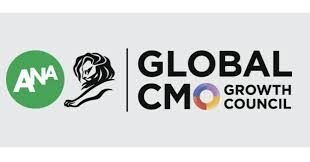- The ANA’s Global CMO Growth Council has released “The CMO Guide to GenAI,” a pioneering collection of case studies showcasing successful Generative AI applications from leading global brands.
- The guide was introduced at the 2024 Cannes LIONS Festival of Creativity, addressing the need for an open resource on AI’s impact on marketing.
- Featured brands include Mastercard, Infosys, National Lacrosse League (NLL), Nestlé Hot Pockets, Intuit Mailchimp, and Shell, each demonstrating unique applications of Generative AI.
- Mastercard’s Digital Engine uses AI to deliver personalized content, enhancing both customer experience and business performance.
- Infosys Topaz enables rapid, innovative marketing solutions, exemplified by their award-winning tennis campaigns.
- NLL leverages Generative AI for actionable fan insights, improving marketing strategies and decision-making.
- Hot Pockets uses AI to align brand communications with Gen Z, driving creativity and efficiency.
- Intuit Mailchimp’s use of AI accelerates campaign production and enhances localization efforts.
- Shell has achieved significant cost savings and operational efficiencies through AI, allowing employees to focus on high-value work.
Main AI News:
The Association of National Advertisers (ANA) has launched “The CMO Guide to GenAI,” a pioneering resource that presents a collection of case studies from some of the world’s leading brands. This guide, introduced at the 2024 Cannes LIONS Festival of Creativity, aims to provide valuable insights into how Generative AI can be effectively integrated into marketing strategies.
The guide features seven detailed case studies from renowned companies including Mastercard, Infosys, National Lacrosse League (NLL), Nestlé Hot Pockets, Intuit Mailchimp, and Shell. Each case study highlights a specific application of Generative AI, showcasing how these brands have successfully utilized the technology to enhance their marketing efforts and achieve substantial growth.
During the Cannes LIONS Festival, where top CMOs gathered to explore the role of marketing in driving growth and innovation, the need for a comprehensive resource on Generative AI became evident. The guide responds to this need by offering concrete examples of how AI can be leveraged to improve marketing outcomes, engage customers more deeply, and accelerate business growth.
Highlights from the Guide:
- Mastercard: Raja Rajamannar, Chief Marketing and Communications Officer, emphasized Mastercard’s long-standing commitment to AI and its recent advancements with Generative AI. The Mastercard Digital Engine, a product enhanced by AI capabilities, delivers personalized content to consumers at optimal moments, enhancing both customer experience and business performance. Rajamannar stressed the significance of these advancements in maintaining competitive advantage in the rapidly evolving digital landscape.
- Infosys: Sumit Virmani, Chief Marketing Officer, shared insights into how Infosys has utilized its AI-first offerings suite, Infosys Topaz, to drive innovation. The company’s association with tennis has been recognized for its technological and marketing excellence, and the AI suite has enabled Infosys to deliver agile, experiential innovations within a short timeframe. This success is a testament to the transformative power of Generative AI in creating impactful marketing campaigns.
- National Lacrosse League (NLL): Kurt Hunzeker, Executive Vice President of Commercial Operations, discussed how Generative AI has provided the NLL with actionable insights from its core fan base. By leveraging these insights, the NLL has been able to refine its marketing strategy more effectively than relying on traditional data sources or extensive qualitative studies. This approach has not only accelerated decision-making but also improved the relevance and impact of the league’s marketing efforts.
- Nestlé Hot Pockets: Bryan Waddell, Senior Brand Manager, explained how Generative AI has revolutionized Hot Pockets’ brand communications. The integration of AI has enabled the brand to capture the essence of Gen Z and set new standards for dynamic and creative brand representation. Waddell highlighted the efficiency and creativity gains achieved through this technology, demonstrating how AI can drive significant improvements in marketing effectiveness.
- Intuit Mailchimp: Michelle Taite, Chief Marketing Officer, reflected on the efficiencies gained by Intuit Mailchimp through the use of Generative AI. The combination of AI and human expertise allowed the in-house agency, Wink, to optimize and localize marketing messages rapidly. The AI-driven approach not only sped up the campaign process but also enhanced the quality and effectiveness of the marketing assets produced.
- Shell: Rahul Malhotra, Head of Group Brand Strategy and Stewardship, discussed Shell’s experience with Generative AI over the past two years. The technology has already delivered significant cost savings and operational efficiencies. Malhotra noted that AI has freed up employees from repetitive tasks, allowing them to focus on more strategic and high-value work. The ongoing exploration of AI use cases is expected to uncover even greater benefits in the future.
The Global CMO Growth Council also released its Official Position on Generative AI earlier this year, emphasizing the importance of responsible and effective AI implementation in marketing. This position aims to ensure that AI initiatives deliver value while mitigating potential risks and unintended consequences.
Conclusion:
The release of “The CMO Guide to GenAI” underscores the growing significance of Generative AI in marketing. By providing real-world examples from leading brands, the guide demonstrates how AI can be leveraged to enhance marketing effectiveness, drive creativity, and achieve operational efficiencies. This resource is likely to influence marketing strategies across industries, encouraging more brands to explore AI’s potential to innovate and optimize their approaches. As AI technology continues to evolve, its integration into marketing practices will become increasingly critical for maintaining a competitive edge and meeting evolving consumer expectations.

